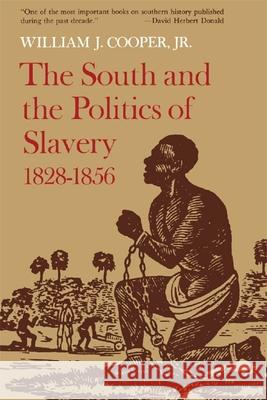The South and the Politics of Slavery, 1828-1856 » książka
The South and the Politics of Slavery, 1828-1856
ISBN-13: 9780807107751 / Angielski / Miękka / 1980 / 420 str.
The politics of slavery consumed the political world of the antebellum South. Although local economic, ethnic, and religious issues tended to dominate northern antebellum politics, The South and the Politics of Slavery convincingly argues that national and slavery-related issues were the overriding concerns of southern politics during these years. Accordingly, southern voters saw their parties, both Democratic and Whig, as the advocates and guardians of southern rights in the nation.
William Cooper traces and analyzes the history of southern politics from the formation of the Democratic party in the late 1820s to the demise of the Democratic-Whig struggle in the 1850s, reporting on attitudes and reactions in each of the eleven states that were to form the Confederacy. Focusing on southern politicians and parties, Cooper emphasizes their relationship with each other, with their northern counterparts, and with southern voters, and he explores the connections between the values of southern white society and its parties and politicians. Based on extensive research in regional political manuscripts and newspapers, this study will be valuable to all historians of the period for the information and insight it provides on the role of the South in politics of the nation during the lifespan of the Jacksonian party system.
Reporting on attitudes and reactions in each of the eleven states that were to form the Confederacy, William Cooper traces and analyzes the history of southern politics from the formation of the Democratic party in the late 1820s to the cessation of the Deocratic-Whig struggle in the 1850s. He bases his study on extensive research of regional political manuscripts and newspapers.











